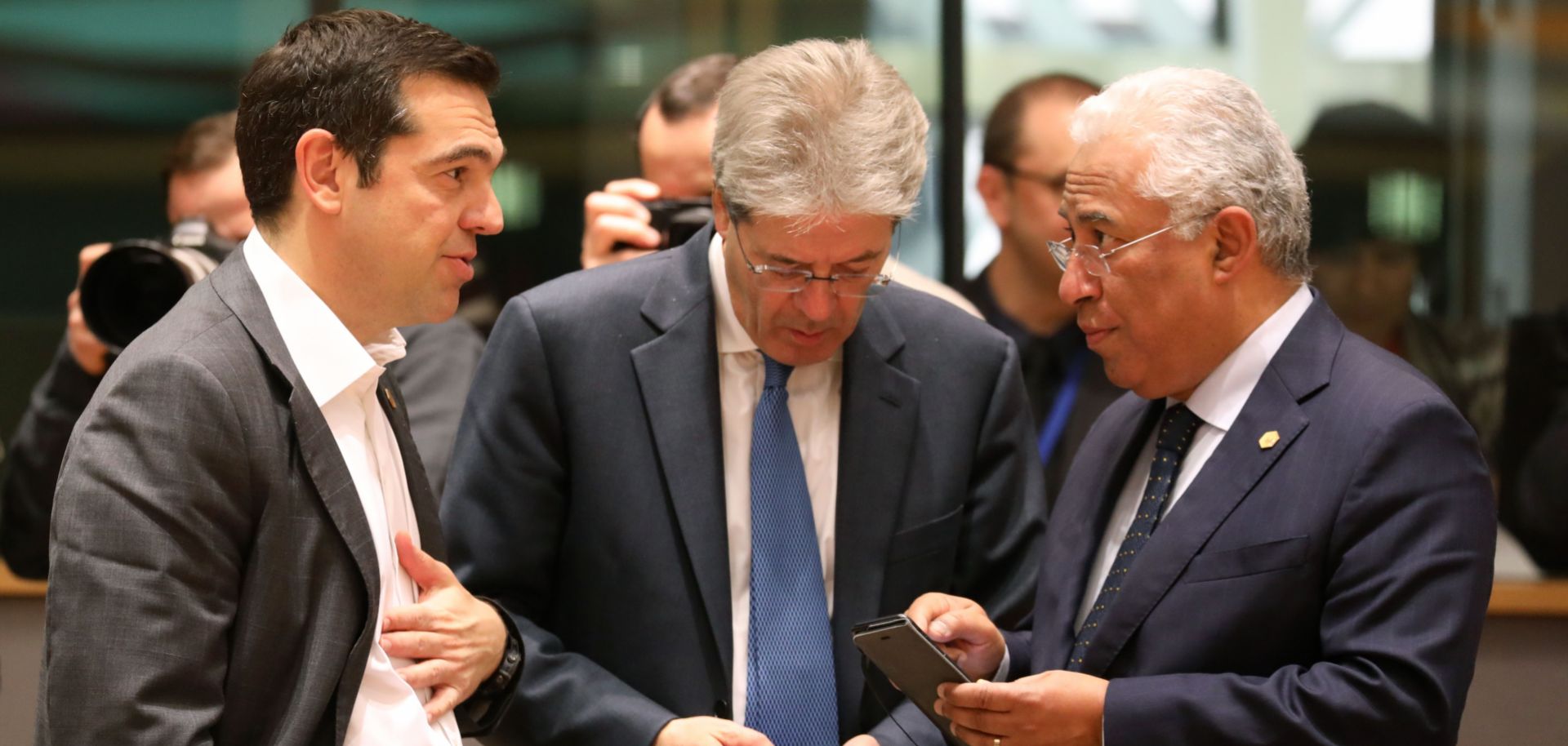ASSESSMENTS
The EU and the Unanimity Trap
May 1, 2018 | 10:00 GMT

Greece's Prime Minister Alexis Tsipras (left) speaks with Italy's Prime Minister Paolo Gentiloni and Portugal's Prime Minister Antonio Costa during a summit of European Union leaders in Brussels on March 23, 2018. EU leaders adopted negotiating guidelines for talks on the future relationship with the United Kingdom, the European Council said.
(LUDOVIC MARIN/AFP/Getty Images)
Highlights
- The European Union is unlikely to reach the consensus that is required to reform its treaties or to accept new member states within the next decade.
- While security and defense cooperation is likely to increase within the European Union, the need for unanimity will continue to create complications for the bloc's foreign policy.
- In the coming years, the temptation to bypass the European Union's institutional constraints by letting some countries introduce reforms while others opt out will increase, but this move could come at the cost of a more fragmented union.
Subscribe Now
SubscribeAlready have an account?
